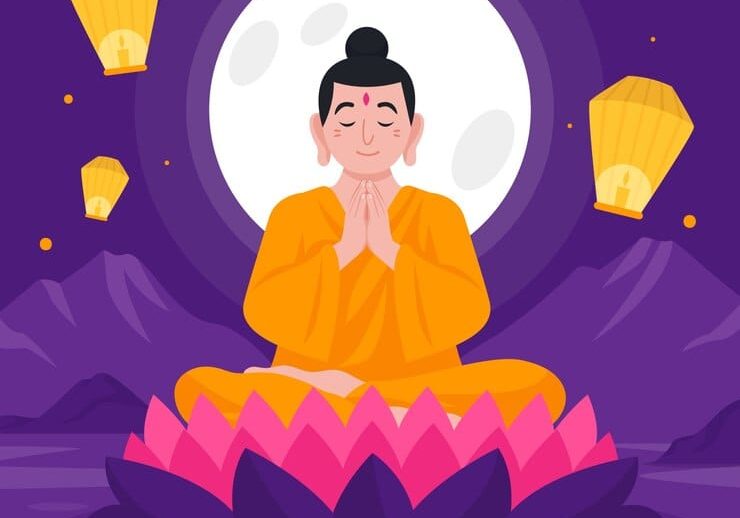
The Power of Bhakti
The Journey of Devotion - By Anandmurti Gurumaa
Reading time: 3 minutes
Broadly speaking there are four paths to self-realisation: knowledge, selfless action, meditation and devotion (bhakti). All four are important as they address different requirements essential in a seeker and the ways of overcoming obstacles encountered on the journey to enlightenment.
Direct, first-person knowledge of the real Self is what separates a Buddha from a common man. Thus, every serious seeker has to ultimately tread the path of knowledge. But this is easier said than done. Why? Because of the dissipated, disturbed and distracted state of the mind.
To understand the highest knowledge (the knowledge of the Self), the mind needs to be calm, composed, focused and free of impurities like craving, aversion, anger, fear, greed etc. This is where the importance of the other three paths comes in.
Selfless action helps purify the mind and meditation helps to focus the mind. This prepares the soil of the mind for the seed of knowledge to take root.
Bhakti or devotion is unique in that it addresses all the inadequacies of the mind in one go: it cleanses the mind of worldly desires, integrates the mind and fills it with love and compassion. Moreover, devotion doesn’t demand any eligibility from the seeker.
The path of devotion is the path of love. All it needs is for you to have a beginner’s faith in the existence of God (Ishwara). You don’t have to be a staunch theist. With an open mind allow yourself to explore the possibility of divine existence. And this exploration cannot begin with scepticism.
Start with a working hypothesis that the words of the ancient scriptures are likely to carry credibility given that they are validated by the direct experience of thousands of enlightened masters over centuries.
‘I will start with belief and see how my experiences shape up.’ With this basic openness and a beginner’s faith start your journey of devotion.
Remember, one can attain self-realisation even without devotion. You don’t have to believe in the existence of God. But you do believe in your own existence, don’t you? So, if you are so allergic to the concept of a God, you are free to take the path of self-enquiry: finding out not who God is, but who I am. But know that this is a very difficult path that demands a great degree of discipline and dispassion.
The path of bhakti softens the hardships on this journey. And all that is needed is love. We all have experienced love in some form or the other. The beauty of divine love is that you can choose any loving relationship with God. You can look upon God as the father, mother, child, friend or beloved.
Love for God is the anchor which keeps you centred not only in your spiritual but also in your worldly life. It is a lasting relationship that never deserts you. It is the springboard that helps you progress on the spiritual path by leaps and bounds.
A heart full of devotion is bereft of sadness, loneliness, and dejection. ‘What do I have to worry about when my Lord is with me at all times.’ Prayers are very powerful. And sincere prayers are always answered.
Yes, the answers may not be to your liking but have faith that they are in your best interest. It is not that God will reveal the winning lottery numbers, make you win your court cases or cure your disease miraculously.
The main argument that atheists have against the existence of God is the prevalence of suffering. ‘Why is there so much bad and sad in this world if God exists?’
Little do they know that things happen in our lives as a result of our own past karmas (actions). What we get or don’t get in our lives is not decided by God. It is an effect of a cause called karma. And we have the free will to exercise our choices and actions.
‘Who or what is God? What is this world? Who am I?’ These are profound questions with profound answers. This is the fundamental quest that inspires a person to embark upon the journey of self-realisation, of God-realisation.
Those who complete this journey successfully are called enlightened. And they are the ones who have the deepest love and devotion for God. What else is left but for the heart to overflow with divine love? And this manifests as immense compassion and love for all sentient beings.
The path of bhakti starts with a beginner’s love and culminates in unsurpassable love. The being becomes an embodiment of love. The heart brims with love, the mind is full of contentment and bliss and the purpose of human life is accomplished.
Open your heart to divine love. Let the power of bhakti transform your unfulfilled lives into the most extraordinary fulfilment.
For more information on such topics visit www.gurumaa.com







